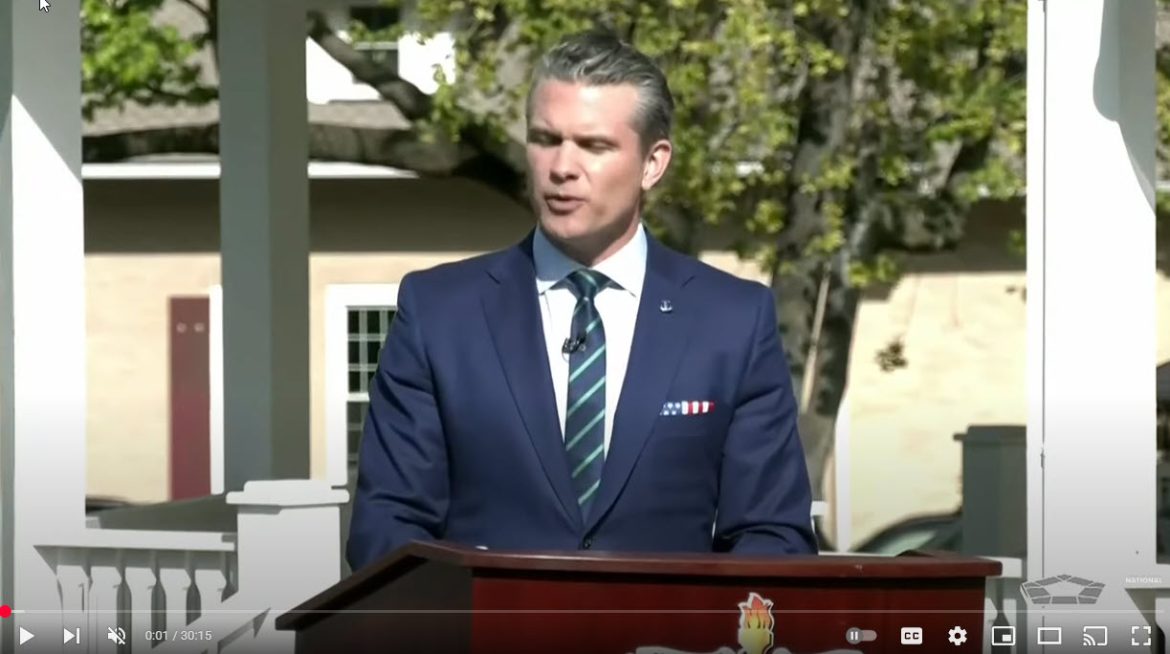Defense Secretary Pete Hegseth announces a sweeping initiative to reinstate more than 8,700 U.S. service members who were discharged for refusing the COVID-19 vaccine, calling them “warriors of conscience” and asserting that they were unfairly removed during what he describes as a period of “unprecedented coercion” in military health policy. Speaking at the U.S. Army War College in Pennsylvania, Hegseth declares, “We want them back.”
The plan marks a major reversal in U.S. military policy concerning the pandemic-era vaccine mandate, which sparked fierce debate among service members, lawmakers, and the public. The original directive—enforced under the Biden administration in 2021—required all active-duty personnel to be vaccinated against COVID-19, citing readiness and force protection. The mandate led to the discharge of thousands who refused the vaccine, even after appeals and exemption requests based on religious or medical grounds.
Hegseth, who assumed the role of Secretary of Defense under the Trump administration, calls the vaccine “experimental,” a label echoed by critics of the original policy. During his address, he argues that the dismissed troops acted on principle and should never have been penalized for exercising personal medical autonomy. “They were warriors on the battlefield and warriors for their conscience,” Hegseth says. “They put country first—and were punished for it. That ends now.”
The Department of Defense is reportedly finalizing a comprehensive reinstatement protocol. While full details have not been released, sources confirm the plan includes restoring rank, back pay where applicable, and resumption of benefits such as pensions and health coverage. The department will also assess each case individually to determine eligibility based on prior service records and current physical readiness standards.
The move comes as part of a broader effort by the current administration to distance itself from what it considers bureaucratic overreach and politicized mandates during the COVID-19 pandemic. It aligns with the administration’s wider review of personnel decisions made under pandemic conditions, including restrictions that affected recruitment, deployments, and retirements.
Critics, however, caution that such a sweeping reversal could undermine public health policy within the armed forces. Some public health experts express concern that framing the vaccine as “experimental” misrepresents the scientific consensus and could fuel future vaccine hesitancy within military ranks. Military leaders who previously supported the mandate warn that reinstatement could pose logistical and disciplinary challenges, especially if the policy shift reignites internal division.
Still, the announcement is welcomed by many conservative lawmakers, veterans’ groups, and military families who had lobbied for years to reverse the discharges. Advocacy organizations like Stand for Our Troops and Liberty Counsel, which have represented discharged personnel in legal cases, applaud Hegseth’s statement and call for swift implementation.
Back history on the vaccine controversy traces back to August 2021, when the Pentagon mandated COVID-19 vaccinations for all service members, citing FDA approval of the Pfizer vaccine and the need to maintain combat readiness during the pandemic. By early 2023, the military began rescinding some mandates under congressional pressure, but a formal return program had not materialized until now.
The reinstatement process is expected to begin this summer, and Pentagon officials say outreach to affected veterans will start immediately. As the Department of Defense seeks to restore morale and rebuild trust, Hegseth emphasizes that this decision is not only a matter of policy correction, but of “honor, fairness, and national strength.”



